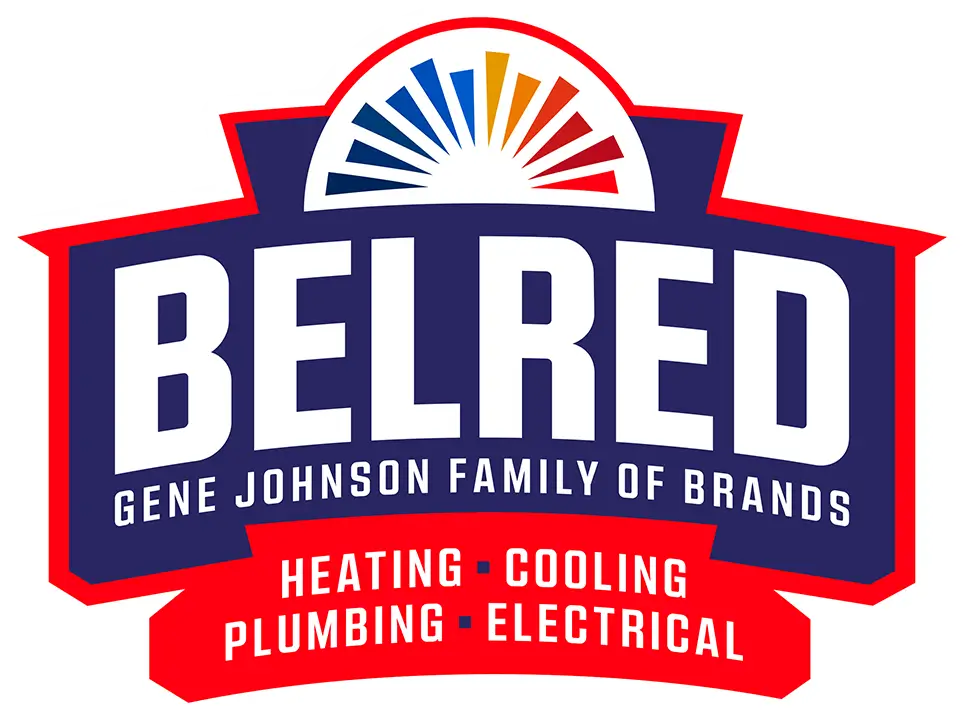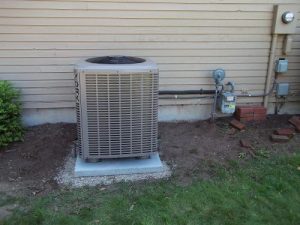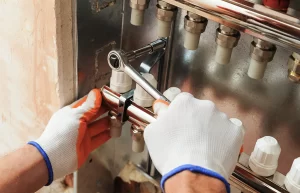Choosing between furnaces and heat pumps is a common struggle among homeowners. Although both systems generate heat for the home, they have very different capabilities and features. Not to mention maintenance and energy requirements.
Your location and climate are the largest deciding factors to which heating system wins in a heat pump vs. furnace debate.
Heat pumps are ideal for areas that experience mild climates, like the coastal or southern states. Meanwhile, furnaces are more suited for areas where the winters are colder and harsher, like the northern states.
This article explores the difference between a heat pump and a furnace by comparing their energy efficiency, energy costs, installation, and more. Hopefully, it helps you decide which heating system is right for you.
What Are Heat Pumps?
If you’re looking for energy-efficient alternatives to furnaces and air conditioners, you should consider getting a heat pump.
Heat pumps are found in most heating and cooling systems in homes today. This technology transfers heat from a warm space to somewhere that’s cold or vice versa using electricity.
In cold climates, a heat pump can take warm outside air and move it into your home, creating a warmer atmosphere.
On the other hand, during the summer, your heat pump may also be used to transfer heat from inside your home to the outside, making your home cooler and more comfortable.
Heat Pumps Don’t Generate Heat
Contrary to what most people think, heat pumps don’t generate heat. They transfer heat from one space to the other, cooling or heating that area and providing a more comfortable atmosphere.
What are Furnaces?
A furnace is another type of heating system that can be found in most homes in America. Most people use a natural gas furnace to heat their properties. However, other furnace types exist, such as electric furnaces, oil furnaces, and propane furnaces.
Depending on the type of furnace you’re using, the system may have a pilot light or electronic ignition that helps the furnace create warm air to blow into your home.
Several components help ensure proper furnace function. These components include heat exchangers to move heat, burners to process natural gas, a blower to distribute the heat through your living space, and a flue to evacuate gaseous by-products from the heating process.
The Difference Between Furnace and Heat Pump
When conducting your heat pump vs. furnace comparison, you’ll want to consider the following factors to ensure you cover all your bases.
Energy Usage
As we mentioned earlier, heat pumps don’t create their own heat and instead transfer heat from one location to another. This is why a heat pump system may be considered a more energy-efficient heating option.
However, some factors can affect your heating system’s energy efficiency.
For instance, heat pumps don’t need to work as hard in warmer climates, so source energy usage is significantly reduced. However, heat pumps may need a little more help in colder climates. As a result, you save more by using a high-quality gas furnace.
Additionally, considering how affordable natural gas is compared to electricity, you save money long-term.
Cost
The costs of using a heat pump vs. a furnace depend on how your home is currently set up. If your house already has access to natural gas, a furnace could be cheaper than a heat pump.
Natural Gas is cheaper than electricity.
Electricity comes with a myriad of environmental taxes, making it more expensive than other utilities. We find this incredibly ironic, seeing how electric energy is much more environmentally sustainable than natural gas.
That said, a gas furnace will often cost more to install. So, make sure you’re ready to pay for upfront costs if you decide to get one.
Maintenance
Preventive maintenance is necessary to keep your home heating and cooling appliances operational. Although homeowners can do most of the maintenance tasks on their own, several maintenance requirements need professional attention.
Heat pumps typically have an indoor and outdoor unit that needs inspection and cleaning once or twice a year, depending on the environment. As there are more parts to be mindful of in heat pumps, it might be better to ask for professional assistance to avoid errors during cleaning.
Gas furnaces only have an indoor unit, so maintenance might not be as demanding. Nevertheless, if you’re not confident in your DIY maintenance skills, it might be a good idea to call in an expert to conduct furnace maintenance.
Lifespan
Although heat pumps cost less to install, they have a shorter lifespan compared to gas furnaces. A heat pump is expected to last between 10 to 15 years, depending on its usage and upkeep. Since a heat pump is used more often to cool and warm your home, it can deteriorate much faster and must be replaced sooner.
On the other hand, a well-maintained gas furnace can last you 20 or more years. If you already have an air conditioner or an accessible fuel source at home, getting a furnace would be more economical compared to a heat pump.
Space
One more thing you need to think about when choosing between a heat pump vs. furnace is the amount of space it will occupy in your home. Generally, a gas furnace will need more indoor space to ensure everyone’s safety and security. You’ll need about 30 inches of space on all sides of your furnace to separate it from other items in your home. This prevents your furniture and other appliances from accidentally catching fire while you’re furnace is in use.
A heat pump normally has two components: an outdoor unit and an indoor unit. Although you only need 24 inches of clearance between these units and other items in and outside your home, in the end, a heat pump still occupies a lot more space compared to a furnace. If you live in a small apartment, this might not be your best choice.
Oil Furnace vs. Heat Pump
We’ve talked a lot about gas furnaces in the previous sections. However, furnaces can use other fuel sources to create heat. Oil furnaces are common in areas that don’t have access to natural gas. Countries in the Northeast are known to use oil furnaces to meet their heating needs.
If you’re having trouble deciding between a heat pump vs. an oil furnace, consider the following:
Climate
Although most homeowners would think an air conditioner is a better choice in milder climates, a heat pump is actually more ideal. It’s energy efficient and can significantly reduce your utility bills.
An oil furnace would be a more reliable choice if you live somewhere in colder climates. It can heat efficiently even when temperatures are well below 32 °F.
Installation
Oil furnace installation is substantially cheaper than a heat pump installation. This is because an oil furnace has fewer units to set up. Meanwhile, a heat pump has two units, the outdoor and indoor unit. It requires more work and materials to settle; thus, it may also cost more upfront.
To ensure everything goes well, you need to hire an expert technician to do the installation for you.
Utility Costs
Although installing a heat pump is more expensive than installing a furnace, running a heat pump saves you more on your utilities.
Oil furnaces require a constant supply of oil to keep working. During the winter months, you’ll need a huge oil inventory to ensure that your furnace lasts the season. Considering how expensive oil and fuel prices are nowadays, an oil furnace might not be the most economical choice.
On the other hand, a heat pump uses electricity to distribute cold or hot air around the house. This makes it more environmentally sustainable and cost-efficient.
Professional Heating and Cooling Maintenance
Heat pump systems may be a better option for someone who lives in a mild climate. Since heating your home won’t be as challenging, you can get more heat rerouted into your house without using more energy. Furnaces are great for people who live in colder climates. They provide heat more efficiently, even when the outside temperature drops below zero.
If something happens to your appliances and they start producing less heat, it may put you in an uncomfortable situation, especially during severe weather and seasons.
Like all appliances, a heat pump and furnace require regular maintenance to stay in good condition. Without regular maintenance, your heat pump or furnace can develop problems that may interfere with its functions. As a result, your appliances may not be able to heat or cool your home as efficiently. Annual maintenance is one way homeowners can extend their appliances’ life expectancy. Furthermore, it’s a great way to save money on repair and replacement costs.
BelRed
Our HVAC specialists at BelRed are masters at providing first-rate services and guaranteeing that each repair is carried out correctly. We offer everything from ac repair, furnace repair, heat pump repair, and more. BelRed technicians undergo a series of classroom and on-the-job training each year. This keeps the quality and efficiency of our services consistent. Rest assured, our technicians know how to operate the latest tools and technologies in the industry.
Before initiating any work, we will thoroughly evaluate and diagnose your problem to provide you with a precise quote for services. For more information about our processes and fees, please don’t hesitate to reach out.







